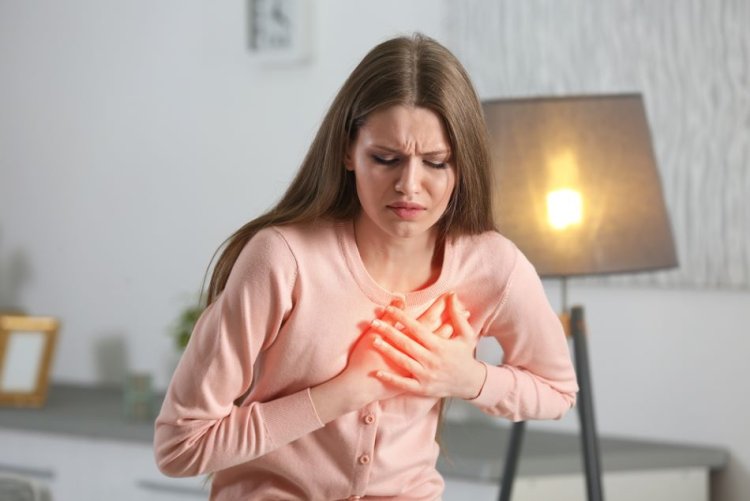If you get tired quickly, it could be due to a disease!
PAY ATTENTION TO HEART VALVE DISEASES!

Three Early Signals Are Especially Important!
If you get tired quickly, it could be due to a disease!
PAY ATTENTION TO HEART VALVE DISEASES!
MEDİCENTERTV.COM / TÜRKİYE
Heart valve diseases, which are a common problem in our country, constitute a significant portion of the patients who apply to the cardiology clinic. It is estimated that there are approximately 41 million patients with rheumatic valve disease, 24 million patients with degenerative mitral valve disease, and 9 million patients with aortic stenosis due to calcification worldwide. Dr. Aleks Değirmencioğlu, Cardiology Specialist at Acıbadem Maslak Hospital, emphasizes that diseases caused by heart valve problems can lead to serious problems threatening life and says, "In cases where the disease is detected late, important problems such as rhythm disorders and heart failure may develop due to the impairment of heart functions. Walking for early diagnosis, getting tired quickly during daily activities such as climbing stairs and hills, shortness of breath, or palpitations should definitely consult a doctor. Because with early diagnosis and appropriate treatment, patients can lead a healthy life," he says. Prof. Dr. Aleks Değirmencioğlu also points out that heart valve diseases can progress for many years without symptoms. "Therefore, if not checked with echocardiography, the problem may not be detected and treatment may be delayed. Therefore, it is very important for every individual to have heart checks at least once in young ages and regularly after the age of 40, even if there are no complaints," he says.
If you get tired quickly, be careful!
Heart valve diseases are divided into three groups according to their severity: mild, moderate, or severe. The initial symptoms of advanced valve diseases are complaints such as fatigue with effort and palpitations. As the process progresses, valve disease can lead to shortness of breath, which initially occurs with effort but progresses to occur even at rest, by exerting extra burden on the heart. It can also cause palpitations, chest pain, or fainting. However, besides these, sometimes valve disease can be detected by chance when a heart murmur is heard while the heart of a patient who has no complaints or who applies to the physician for any health problem or for a check-up is at rest.
The most common cause in our country is joint rheumatism!
The structures in our heart that prevent blood from flowing back when it passes through the heart chambers are called 'heart valves'. There are 4 valves on the left and right sides of the heart. Valve diseases; can occur as narrowing of these valves, valve insufficiency, or a combination of both. Rheumatic fever, which can occur after bacterial throat infection, and congenital abnormalities are the most common causes of valve disease. Cardiology Specialist Prof. Dr. Aleks Değirmencioğlu emphasizes that as the population ages, the frequency of valve diseases due to calcification increases. Dr. Aleks Değirmencioğlu says, "As the population ages, the frequency of valve diseases due to calcification increases. Also, the collapse of the valves due to abnormality in valve structure is another cause of valve disease that is common both at a young age and in advanced age. In addition, rheumatic valve diseases have relatively decreased as the socio-cultural level has increased compared to past years," he says.
Preventing permanent damage to the heart!
Heart valve diseases can be easily detected by cardiac examination and echocardiography, which is called cardiac ultrasound. Cardiology Specialist Prof. Dr. Aleks Değirmencioğlu points out that if the patient has started to have complaints or if there is a certain level of deterioration in the heart, intervention must be made, "The most important two goals in treatment are to relieve the patient's complaints and to prevent irreversible damage to the heart," he says. Prof. Dr. Aleks Değirmencioğlu states that in the treatment of valve diseases, intervention is performed on the valve angiographically or surgically, and says that sometimes the valve can be repaired, while in many patients, the worn valve needs to be replaced with a biological or mechanical artificial valve.
Regular follow-up after treatment is mandatory!
After timely and appropriate valve intervention, patients can continue their normal lives almost immediately. Prof. Dr. Aleks Değirmencioğlu emphasizes that regular follow-up after treatment is important and that it is important to avoid very heavy exercises, saying, "In addition, patients treated with a mechanical valve need to use a blood thinner drug that needs to be regularly followed up," he says.




















